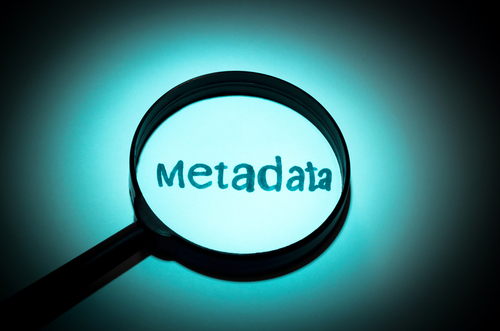 [This article was written by Michelle Fletcher, Digital Operations Inspector at CD Baby.]
[This article was written by Michelle Fletcher, Digital Operations Inspector at CD Baby.]
The official definition of metadata is, “a set of data that describes and gives information about other data.”
Metadata, in this particular musical context, is the information that you input during the CD Baby submission process for your album or single, including:
* artist name
* title (of album or single)
* the release date
* record label
* track titles
* genre
* composer information
* and more
All of this information is included when we deliver your music to our streaming and download partners (Apple Music, Spotify, Amazon, etc.).
You want to look good, right? You want your music to be searchable, right?
Good metadata is a lot like your favorite pair of jeans. Most of the time you don’t even notice you’re wearing them, but you’ll certainly notice when they go missing. With metadata, consistency, brevity, and simplicity are key, but easily taken for granted.
While often overlooked by musicians, metadata can be the difference between a decidedly amateur presentation of your music and one that appears professional to the uninformed observer or undecided customer. It’s critical to put your best foot forward from the minute their curious eyes fall upon your album.
Plus, metadata is what powers the search function on most digital retail platforms. Without clear and accurate metadata, you might not have any undecided customers to win over in the first place.
Metadata should be timeless
When it comes to metadata, avoid using grammatical memes and trends that may fall out of fashion quickly. You don’t want your metadata and web presence to become unintentionally outdated, or even worse, fail to convey the correct information to your fans.
A great example of this would be the rise of the hashtag. While Twitter, Instagram, and multiple other social media platforms have all made good use of the hashtag for users to more easily sort for relevant content, digital retail products (like your music!) have a permanence in their presentation that isn’t found on social media sites. So, think twice before you begin your song titles or album names with a hashtag.
Sure, when a song is initially released a hashtag may make for more searchable terms on those social media platforms, but outside of the framework of tagging, the presentation of a track as such is superfluous. It’s not going to increase your sales, as tagging doesn’t exist as a feature for any digital music retailer, and it will mark your music as being from a particular time period (2010 – now).
In other words, the hashtag has the potential to be the metadata equivalent of the mullet. The same goes for “$,” plentiful astericks, and a handful of other symbols. This doesn’t necessarily mean they shouldn’t be used, just that you should be aware of how their use will contextualize your content.
Keep. It. Simple. Stupid.
Giving your fans, customers, and anyone else that may stumble upon your music a clean presentation goes a long way. The simple act of double-checking your spelling can save you a lot of headache down the line. Some retailers will not accept spelling corrections from your distributor, and those who do may take weeks to make the fix. You don’t want to spend hours trying to correct something that could’ve been avoided with 15 minutes of proofreading.
Another thing to watch out for: you should NOT list each of your band members as individual artists. For instance, “KISS” is not “KISS (feat. Gene Simmons, Paul Stanley, Ace Frehley, & Peter Criss).”
Your band name is enough (unless your band name actually consists of individual members’ names, like “Brooks & Dunn,” “Simon & Garfunkel,” “Hall & Oates,” etc.)
There are, of course, exceptions to this – particularly in Jazz and music featuring trios and quintets – but otherwise, most contemporary performing groups don’t need to include that information when submitting metadata.
Some digital distributors and retailers will take care of amending these kinds of issues before distribution, as it can create customer confusion about what your artist name actually is. It can also create a sense of confusion about your artistic identity, which generally doesn’t enhance strong branding. So let’s avoid that confusion from the start.
—
Your metadata gives you a chance to enhance your musical presence, and this is something you should always keep in mind when signing up your music for web retail. But it can also work to your detriment if you choose to play it fast and loose.
Take time to make sure what you’re putting out into the world reflects exactly what you want it to. It’s your music, after all, and accurate metadata is one of the best ways to make sure people find it, hear it, and fall in love with it.
[hana-code-insert name=’newsletter-get-music-promotion’ /]
[hana-code-insert name=’marketing-spread-the-word’ /]
[Metadata picture from Shutterstock.]
